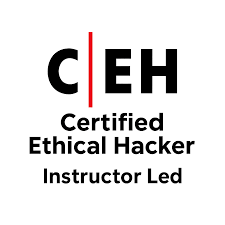Palo Alto Training – Learn Palo Alto Firewalls in 2025

In today’s hyper-connected world, cyber threats are evolving faster than most organizations can defend against. Traditional security approaches are no longer enough. To stay ahead, companies need professionals who can think like attackers—but act ethically. Enter the Certified Ethical Hacker (CEH): trained to break in, not to cause harm, but to help secure. Hacking is […]

In today’s hyper-connected world, cyber threats are evolving faster than most organizations can defend against. Traditional security approaches are no longer enough. To stay ahead, companies need professionals who can think like attackers—but act ethically. Enter the Certified Ethical Hacker (CEH): trained to break in, not to cause harm, but to help secure.
Hacking is No Longer a Hollywood Fantasy
Cyberattacks are no longer the stuff of thrillers. In 2023 alone, cybercrime caused an estimated USD 8 trillion in damages. From ransomware to phishing, businesses of all sizes are vulnerable.
Black-hat hackers use increasingly sophisticated methods to infiltrate systems. To counter them, organizations turn to ethical hackers—professionals who simulate real attacks to uncover vulnerabilities before they can be exploited.
The CEH (Certified Ethical Hacker) certification is offered by the EC-Council. It trains cybersecurity professionals in offensive techniques—legally and ethically.
CEHs learn how to:
The program covers over 20 modules, including web attacks, malware, social engineering, wireless and cloud security, and even IoT threats.
CEHs use the same tools as malicious hackers:
The difference? Ethical hackers operate under clear legal agreements—typically through authorized penetration testing, bug bounty programs, or vulnerability assessments.
CEH is a globally respected certification that opens doors to roles such as:
According to CyberSeek, CEH-certified professionals can earn between $70,000 and $130,000+ annually, depending on their experience and region.
You can prepare for the CEH through:
The certification exam includes:
CEH is more than just a badge—it’s a mindset. It validates not only technical skill, but ethical responsibility. In a world where breaches are the new normal, organizations don’t just need defenders—they need ethical attackers who can anticipate threats and close gaps before real damage is done.
So if you’re ready to break in to secure, CEH might just be your next big move.
Get certified with industry-leading cybersecurity certifications from EC-Council, PECB, Palo Alto Networks, and more.

Learn from world-class instructors Collaborate with top professionals Advanced training...

The CEH is the world's leading cybersecurity certification, recognized by...

Onsite training course Led by an instructor Interactive sessions

Asynchronous, self-study environment Video-streaming format Flexible learning schedule
Adding {{itemName}} to cart
Added {{itemName}} to cart

